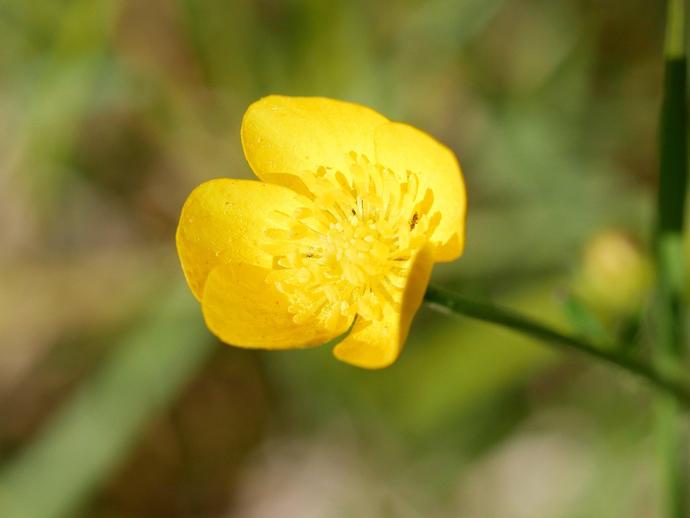February 6, 2021
We're reaching into the archives for today's #BenInNature update presented by our friends at Carter Bank & Trust! The following post was originally published on May 16, 2020.
There are many different species of buttercups, all belonging to the genus Ranunculus. "Ranunculus" is Latin for "little frog," and it likely got its name because these plants tend to grow near water and in poorly-draining soil.
Buttercups have a tendency to pop up in pastureland, which is potentially dangerous as all species within the genus are poisonous. Fortunately, livestock tend to avoid them unless they're truly desperate for food.
Perhaps the neatest feature of the buttercup is that the flowers are highly reflective! The upper surface of the petal is incredibly smooth and almost acts as a mirror, which likely helps attract pollinating insects. When you were a child, there's a good chance someone held a buttercup flower under your chin and told you that if your chin turned yellow, it meant you liked butter. Because the flower is so highly reflective, the trick works on everybody. Then again, I don't know anyone who doesn't like butter, so I guess it's pretty accurate.
ABOUT #BenInNature
Social distancing can be difficult, but it presents a great opportunity to become reacquainted with nature. In this series of posts, Administrator of Science Ben Williams ventures outdoors to record a snapshot of the unique sights that can be found in the natural world. New updates are posted Monday - Friday, with previous posts highlighted on the weekends. This series of posts is made possible thanks to the support of VMNH Corporate Partner Carter Bank & Trust (www.cbtcares.com)
NATURE PHOTO IDENTIFICATIONS
If you discover something in nature that you would like help identifying, be sure to message us right here on Facebook with a picture (please include location and date of picture) and we'll have our experts help you identify it!

 Hours & Admissions
Hours & Admissions Directions
Directions

